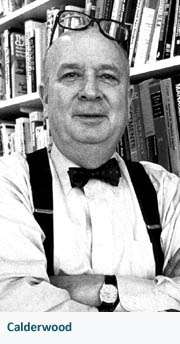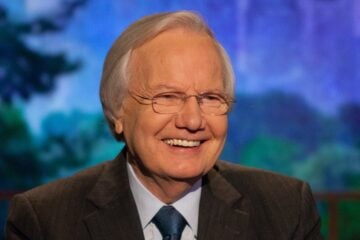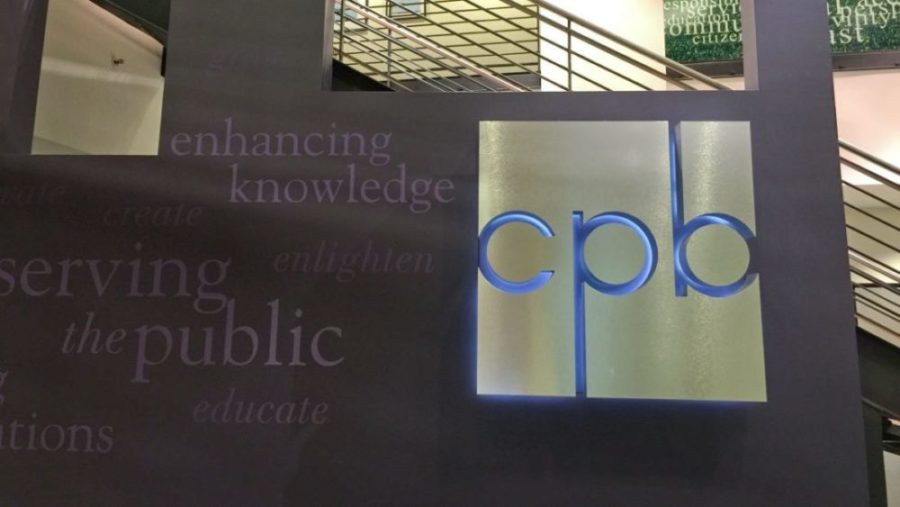How should public TV follow up the Forsyte Saga success?
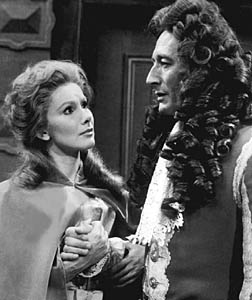
"Forsyte Saga" star Susan Hampshire returns in "The First Churchills," the first drama on "Masterpiece Theatre" in 1971. She's pictured with John Neville.

“Forsyte Saga” star Susan Hampshire returns in “The First Churchills,” the first drama on “Masterpiece Theatre” in 1971. She’s pictured with John Neville.
Near the end of June 1970, Stanford Calderwood and his wife, Norma Jean, were comfortably settled in their regular rooms in London’s Claridge’s Hotel. Until a few weeks before, he had been executive vice president of the Polaroid Corp. She was an Islamic scholar who took advantage of their frequent visits to England to conduct research at the British Museum.
But this trip was different. Calderwood, bored and affluent but not yet 50, had left the corporate world where he achieved success in advertising and marketing, for a life of public service. In the Calderwoods’ hometown of Boston, Hartford Gunn had recently resigned as head of WGBH and was moving to Washington to become the first president of PBS. Julia Child, WGBH’s famous resident cook and a near-neighbor of the Calderwoods’, persuaded Stanford to try for the vacant position. As he set out on this trip, it looked as if WGBH would soon hire him.
Calderwood had considerable experience in acquiring TV programs for Polaroid’s sponsorship. He prided himself on buying programs — often documentaries — at what he termed “distress prices” after they had been turned down by other organizations. He also had more than a sketchy knowledge of public television. Polaroid had been an early underwriter of Julia Child’s series. “I went into public television, with a long record of squeezing a great deal out of quality programming,” he wrote several years ago in a memo provided to at least a couple of researchers. [See Laurence Jarvik’s 1999 book.]
He had observed the immense success of The Forsyte Saga a BBC adaptation of Galsworthy’s novels that had just completed its run on National Educational Television (NET) and thought it strange that neither WGBH nor NET, itself, had any plans to follow-up on its popularity. During his many business trips to the U.K., he had become well acquainted with British theater and TV drama.
Small wonder then that Calderwood, a restless and aggressive deal-maker, should decide to make a “cold call” on the BBC to ask if they would like to sell programs to WGBH. In the absence of a budget and, as he later acknowledged, without authority from the station, he began to do business. The call from Claridge’s set in motion the creation of what would become the most prestigious and enduring drama series in American public TV’s history. Ironically, the initiative was taken by a man whose tenure in public broadcasting was one of the shortest; Calderwood became the third president of WGBH on June 30, and by the end of November he had resigned.
In researching the history of ideas it is common to discover that many people claim to be the originators of the same concept. Coincidence often plays a large hand in such matters. Frank Gillard was a TV and radio program executive at the BBC, having joined the company as a war correspondent in 1940. He was also, in 1970, a frequent consultant to U.S. public television. In a letter written in 1994 (when he was 86), Gillard describes in clear and considerable detail, how he gave Stanford Calderwood the idea for Masterpiece Theatre. It was during the intermission of a Boston Pops Concert. While the U.S. Congressman seated between them slept off the effects of some warm champagne, Gillard outlined his “Masterpiece” concept. Calderwood, enthusiastic, invited Gillard and WGBH’s program manager, Michael Rice, to his house in the country the next day, a Saturday, where they discussed running serialized dramas. Much of Gillard’s argument, he says, was based upon his concern that no one had planned to build upon the achievement of The Forsyte Saga.
“Michael asked me,” says Gillard, “to suggest a presenter to give a friendly word of interpretation to the American audience, and I at once nominated Alistair Cooke. . . . So the series was born, and a great American institution was created. I have rejoiced at its huge success.”
The concept also occurred to Christopher Sarson, who later became the first executive producer of Masterpiece Theatre. In an interview published in the WGBH book commemorating 25 years of Masterpiece Theatre, Sarson wrote, “I went to Stan Calderwood with the idea [for serial drama]. He just grasped [it]. He reckoned Mobil would be the right company for something like this.”
Endless squeezing
When Calderwood appeared at the BBC he was passed along to Robin Scott, then controller of BBC-2, the chief source of serial dramas. Tall, prematurely gray and patrician, Scott met Calderwood’s brash style and his plan to broadcast large numbers of BBC programs on U.S. public TV with skepticism. As Calderwood recalled it, buying programs from the BBC was not easy; “Look, I said, that good stuff sitting in the can is like a hotel room unsold—it’s worthless. Why not give us some cut prices and use it as a loss leader?” Scott’s answer was to provide a screening room and all the TV drama Calderwood could watch in three days. When Calderwood emerged, there were further talks. Scott, now warming to the prospect of creating a wedge to pry open the American market, thought he might be able to lean on Time-Life, which owned the U.S. rights to BBC material, to sell the programs for less than it would normally expect from commercial TV. Eventually Scott found himself offering a wide range of programming, including the BBC’s famous nature and science series. But Calderwood, always the dealer, waved these off with the promise that nature would be next if he got drama going. (An abundance of nature and science programs did flow later, but through a different mechanism.)
In the end, Calderwood left London with several BBC dramas on 16mm film. He recalled later that his enthusiasm was not shared by members of his new staff; WGBH was “a sandbox for overgrown kids,” he commented. With the exception of “true believers” David Ives (soon to succeed him as president) and Michael Rice, Calderwood found little encouragement for his interest in importing BBC serial drama.
“I presented my idea of using BBC programs primarily to build an audience for public television,” Calderwood wrote 21 years later. “The bigger the audience, I argued, the easier it would be to raise money from a broad base of contributors. There were damn few on the staff—at any level—that thought much of the idea.”
By this time Calderwood seems to have incorporated in his argument the perplexity that Frank Gillard had expressed: why not follow-up the success of The Forsyte Saga? “In my early talks at WGBH . . . I kept asking that question and failed to get a satisfactory answer. In short, no one seemed to give a damn.” In an environment of increasing hostility, Calderwood determined to go it alone.
Perhaps understandably, Peter Roebeck, Time-Life’s representative, did not leap at the chance to sell his British inventory at cut-rate prices. Calderwood used the argument that placing a major series on WGBH would be like getting paid to run a commercial for his entire library of programs. “After endless squeezing,” Calderwood says, “I finally got what I thought was a price I thought I could raise.”
With Time-Life’s agreement in hand, Calderwood set out “to cage” PBS. This was comparatively simple. The network was in its infancy, with more hours available than good programs. Sam Holt, then PBS’ program head, was delighted by the idea. “This excited me,” he says, “because there were a lot of four- to seven-week series. Here was a chance to hook people and keep them. If the audience didn’t like a given series, they might miss only a few weeks rather than dropping out of the whole season. We decided to repeat it nationally, giving people a chance not to miss a week.”
Calderwood, convinced he had a winner, thought the least of his problems would be finding an underwriter. He was mistaken. Again and again, he reports, he was dispatched from one corporate executive to another, and finally to an advertising agency that would kill the idea. AT&T was interested briefly, but gave it up. No one would buy in. After some 40 attempts he went to the ad agency he had hired at Polaroid — Doyle, Dane & Bernbach. This agency also represented the Mobil Corp. Here he asked Joe Daly to put him in touch with the right man at Mobil. He also extracted a promise from Daly that if Mobil was receptive, DDB was not to kill the deal because no commissions were involved, the chief cause of his failure to raise money elsewhere.
The person to see at Mobil was Herb Schmertz, the intelligent and urbane head of Mobil’s public relations and advertising. Schmertz had been a labor lawyer specializing in arbitration before joining Mobil. In 1960 he was active in the John F. Kennedy presidential campaign and later campaigns of Robert and Edward Kennedy. Calderwood phoned him and asked if he had seen The Forsyte Saga. Schmertz, lying, said he had, and that he had loved it. In that case, Calderwood went on, what would he say to buying 39 BBC hours, for about $390,000, to be run nationally. (The final purchase price was $375,000—$100,000 toward production costs and $200,000 toward promotion.)
As Schmertz writes in his book, Goodbye to the Low Profile, “Even in 1970, that was an absurdly low figure, so I was eager to learn more.” Calderwood obliged and soon had a deal, sanctioned by Rawleigh Warner, then Mobil’s chairman. Only much later did Schmertz learn that the BBC programs had been shopped around to dozens of other companies.
Mobil’s announcement of a million-dollar grant (for both Sesame Street and Masterpiece Theatre), the largest gift of its kind up to that time, generated considerable publicity.
“This should be clear,” says Calderwood, characteristically speaking of himself in the third person, “had Calderwood not met a soul mate in Herb Schmertz, there would be no Masterpiece Theatre.”
Shopping in London
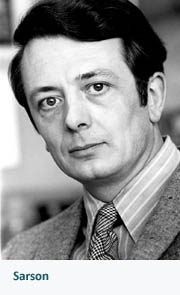 Schmertz engaged a TV consultant, Frank Marshall, who worked with him on all aspects of WGBH-related projects, including the Mystery! serials, in the years to come. These two, together with Michael Rice, Christopher Sarson, the executive producer Rice had assigned to the series, Sam Holt and Calderwood himself, met in London on Sept. 21, 1970, to begin screening programs at the BBC. They were joined by public relations consultant Selwyn James, a representative from Doyle, Dane & Bernbach, Peter Roebeck from Time-Life, and the ubiquitous Frank Gillard. Peter Lord and Phillip Jones were their BBC “hosts.”
Schmertz engaged a TV consultant, Frank Marshall, who worked with him on all aspects of WGBH-related projects, including the Mystery! serials, in the years to come. These two, together with Michael Rice, Christopher Sarson, the executive producer Rice had assigned to the series, Sam Holt and Calderwood himself, met in London on Sept. 21, 1970, to begin screening programs at the BBC. They were joined by public relations consultant Selwyn James, a representative from Doyle, Dane & Bernbach, Peter Roebeck from Time-Life, and the ubiquitous Frank Gillard. Peter Lord and Phillip Jones were their BBC “hosts.”
“It was an unusual situation,” says Sam Holt. “Both Rice and I had been Rhodes scholars. Sarson, who was British, had been educated at Cambridge. It was a group of Americans far more familiar than usual with British culture, style and TV than most. We’d been consumers of it.”
Sarson was now the most influential member of this expanding team of advisers. London-born, he was 35. He had entered Cambridge to study law and accounting, but after the second year began playing double bass in a local orchestra, became involved as a composer in musicals and was about to become music director for the Bristol Old Vic when he was offered an apprentice position with the relatively new, independent commercial broadcaster Granada TV. In 1963 he came to the U.S., worked for a year at Washington’s WETA, then went to Boston where he was assigned to produce a WGBH series, Performance.
The group looked at first episodes from 15 series, including Vanity Fair, Portrait of a Lady, Cold Comfort Farm, Middlemarch, Dombey and Son and The Possessed. Those that survived the first cut were examined further. It was finally decided to lead the series with The First Churchills. (“Not one of our best,” Frank Gillard remarked years later. “It was beset with internal casting problems.”) The decision turned largely upon the lead actress, Susan Hampshire, who had also appeared as the lead in The Forsyte Saga and the fact that Americans would be familiar with the Churchill name.
The First Churchills would be followed by The Spoils of Poynton, The Possessed, Pere Goriot, Vanity Fair, Resurrection and Nana. As Michael Rice noted in a memorandum to Calderwood soon after the London screenings, “Obviously our backlog for a second season will be much weaker unless the BBC produces some great new shows in the meantime.”
Sam Holt later expanded this apprehension: “What we discovered was that we could exhaust the BBC. We spent most of that first week—eight to ten hours a day—screening, and we didn’t fully realize that not one in four of the programs would work.”
WGBH, Mobil and PBS had approached the BBC at a time when its management was at the top of its form. Its 13-part review of cultural history, Civilisation, (with $800,000 from the U.S. sources, including $350,00 from CPB) would appear on PBS in the same season as Masterpiece Theatre. Again, Sam Holt: “I dealt from the beginning with the four BBC program people. I think they were the most intellectually competent and talented, as well as the best TV management group with which I’ve ever done business. Huw Weldon was managing director of TV programs and architect of all this; David Attenborough was director of programs; Paul Fox was head of BBC-1, and Robin Scott, controller of BBC-2. Aubrey Singer, because of Civilisation, became a kind of special projects guru. Aubrey’s entrepreneurial flamboyance had sold the BBC on international coproduction. It had previously been a fairly ponderous process. He proved it could be a cornucopia. BBC coproductions were really cofinancing—’Your money and our production,’ as Singer frequently put it.
“David was my nominal peer, but Paul and Robin had the power because they controlled the budgets,” recalls Holt. “David Attenborough remains one of the most interesting persons I’ve ever dealt with: literate, disciplined, distant, extremely smart and well educated, with an enormously fertile imagination and a kind of brutal practicality you hope for in a producer.”
While Calderwood was preoccupied by BBC program selection in London, things were not going well for him in Boston. Some of the problems at WGBH threatened to derail the production for which he had now found financing. A segment in a documentary series, The Ralph Nader Report, featuring Ralph Nader and his “Nader’s raiders” was highly critical of Mobil—”a nasty and damaging scene,” according to Calderwood who believed that the producer had gone out of his way to “get at Mobil.” He also thought that the producer, Don Fowser, was unhappy about WGBH taking money from Mobil. Calderwood likewise felt that Fowser’s views were supported by the station’s staff. Though fuming, Calderwood decided not to cancel the segment, seeing a possible producer press conference on the horizon. Instead, he phoned Schmertz.
“I explained what he was about to get hit with,” says Calderwood, “and asked for his understanding. He was very gracious about it. No pressure whatsoever. Again, as the pragmatic man, I wasn’t about to put my finger in his eye.”
While the Nader program seemed resolvable, another series, Say, Brother, WGBH’s African-American series, proved fatal to Calderwood’s brief public TV career. Initially, the problem concerned language, unacceptable in Calderwood’s opinion—the sort that, he said, “chilled the FCC.” The difficulty escalated, becoming a racial controversy. The black producer was fired. Calderwood refused to rehire him and, as he says, “My board failed to give me adequate support.” (The young producer accidentally drowned before his rehire case was decided.) Stanford Calderwood stepped out of public broadcasting and never returned. “I left,” he says, “with no hard feelings.”
Something heraldic, someone literate
In the two months before the start of Masterpiece Theatre, producer Chris Sarson made several decisions that would mark the series distinctively for years. A musical theme was required, something British and heraldic, music bespeaking the glory of England. What Sarson chose, as it happens, is French. He had heard it years before being played through loudspeakers each morning at a Club Med resort in Palermo, Sicily. Chagrined that a French composition was perfect for the opening, his first reply to inquiries concerning its origins was: “Just an old piece I found in the library.” A journalist finally identified it publicly as “Fanfare for the King’s Supper,” by J.J. Mouret, a 16th century, Provence-born musician and sometime conductor of the Academie Royale who had died a pauper. A decade after the TV series commenced, a travel writer assigned to assess the Palermo resort, gave it a high rating, remarking that it was even using the Masterpiece Theatre theme for reveille.
At the first London screenings, the series’ working title was “The Best of the BBC.” Soon thereafter, Sarson made some title suggestions to Calderwood. “Masterpiece Theatre” headed the list, followed by “The Best of the BBC” and “This Week’s Episode.” “I propose just plain ‘Episode,'” Sarson explained in his memo. “It has the flexibility and enigma of Somerset Maugham’s films ‘Trio’ and ‘Quartet’ . . . It’s not the catchiest title in the world. I shall brainstorm some more.” The final choice was easy; it was the spelling of “theatre” that caused trouble. Sam Holt thought it appropriate but remembers that many public TV station managers seemed miffed that the “re” ending was used. Calderwood, apparently thinking it was Schmertz’s idea, says he “choked on spelling it ‘Theatre,'” but, again, did not wish to offend the sponsor. For his part, Schmertz says that “Sarson insisted on the British spelling. . . . I think it was a bit pretentious, but Sarson’s view prevailed.”
The series required a host, a presenter, someone literate and articulate, to interpret the cultural and literary nuances of a wide range of dramatic adaptations. In England, Ludovic Kennedy, a TV personality and reporter, had expressed an interest. Among Americans, Sarson was working with a list that included Roger Rosenblatt at Harvard, Peter Arnett, a charismatic Englishman at Tufts, William Alfred, also at Harvard, and actor Burgess Meredith. Alistair Cooke was at the top.
Born Alfred Alistair Cooke in 1908 in Manchester, the future Masterpiece Theatre host took a Cambridge degree before moving in 1938 to the U.S., where he became a citizen in 1941. He continued his studies at Yale and Harvard and became a foreign correspondent based in America. He worked for a time as a movie critic before beginning the longest-running radio program of all time, his weekly BBC Letter from America, eloquent essays on the social, political and cultural lives of his (now) fellow citizens. For several years Cooke had hosted Omnibus, an acclaimed Sunday afternoon cultural TV anthology on CBS. [Article about Omnibus.]
When Sarson first contacted Cooke, he was writing and presenting a series entitled, America: A Personal History for NBC. He wanted an Englishman but felt that Cooke was even better “because he was transatlantic.”
Sarson’s initial phoned overtures failed. Cooke was far too busy. But others, including his daughter, thought it was a splendid idea. Gillard, backing his original idea, phoned Leonard Maill, then BBC’s representative in New York, urging him to persuade Cooke to take the job.
With time running out, Sarson visited Cooke on location when he was filming America in Boston. The answer was still “no.” Still, Cooke could hardly fail to observe Sarson’s desperation. Soon after Thanksgiving (which Cooke spent with his daughter, who continued to urge him to host the series), he phoned Sarson. Typically and mischievously he suggested other possibilities—”The person you need,” he said, “is somebody with the artful off-handedness of Max Beerbohm, the zest of John Mason Brown, or the talkative guile of Alexander Wolcott.” Sarson replied that he agreed but they were all dead. “I know,” said Cooke, “I’ll do it.”
In the next 22 years, the courtly, intellectually resourceful Alistair Cooke became Masterpiece Theatre, his insouciant and urbane interpretations of the dramas finally becoming an essential dimension of the stories he introduced. After such a long association, Cooke observed, “It was, of course, another element of the magic that I was often blamed for flaws in the composition of, say, The Mayor of Casterbridge, Bleak House, or any of the scores of masterpieces I have written. It is an impeachment I have learned to live with down the years.”
The Masterpiece Theatre stage was finally set. But on opening night its most popular programs—Upstairs, Downstairs, I Claudius, The Jewel in the Crown—had not yet been produced. Few in the first Sunday audience would have guessed that they were watching the beginning of the longest-running drama series in television’s history. At WGBH and PBS the producers worried that it might not survive The First Churchills.
LATER ARTICLES
Laurence Jarvik, a diligent opponent of federal funding of public broadcasting in the 1990s, was also a student of Masterpiece Theatre. His book, Masterpiece Theatre and the Politics of Quality, based on his dissertation, covers the origins of the series. It was published by Scarecrow Press in 1999.
Mobil’s successor corporation, ExxonMobil, announced in 2002 it would end its long sponsorship of Masterpiece Theatre.
Forsyte remake goes for the “youthful passion,” 2001.
Series founder Stanford Calderwood dies, 2002
LINKS
Masterpiece Theatre aired a new British production of The Forsyte Saga in two parts, fall 2002 and winter 2004.


